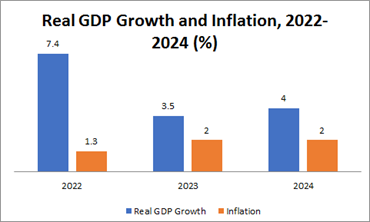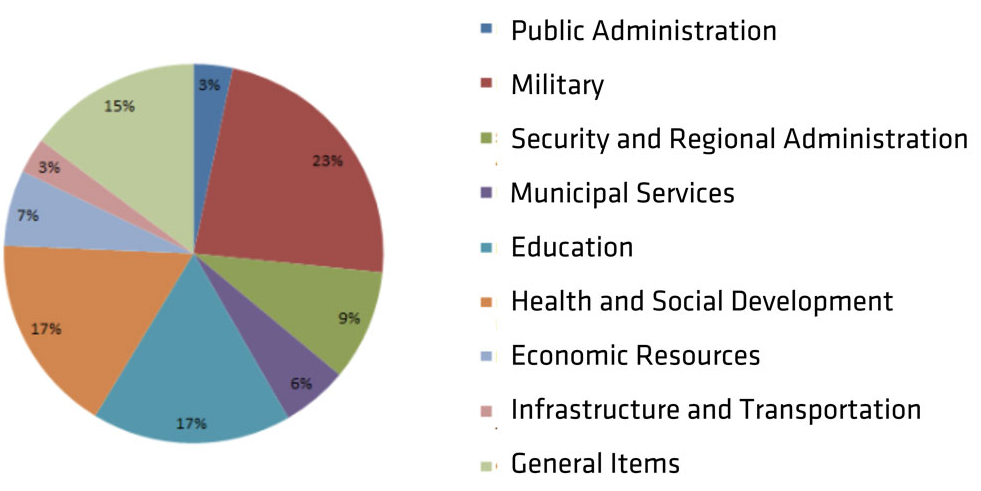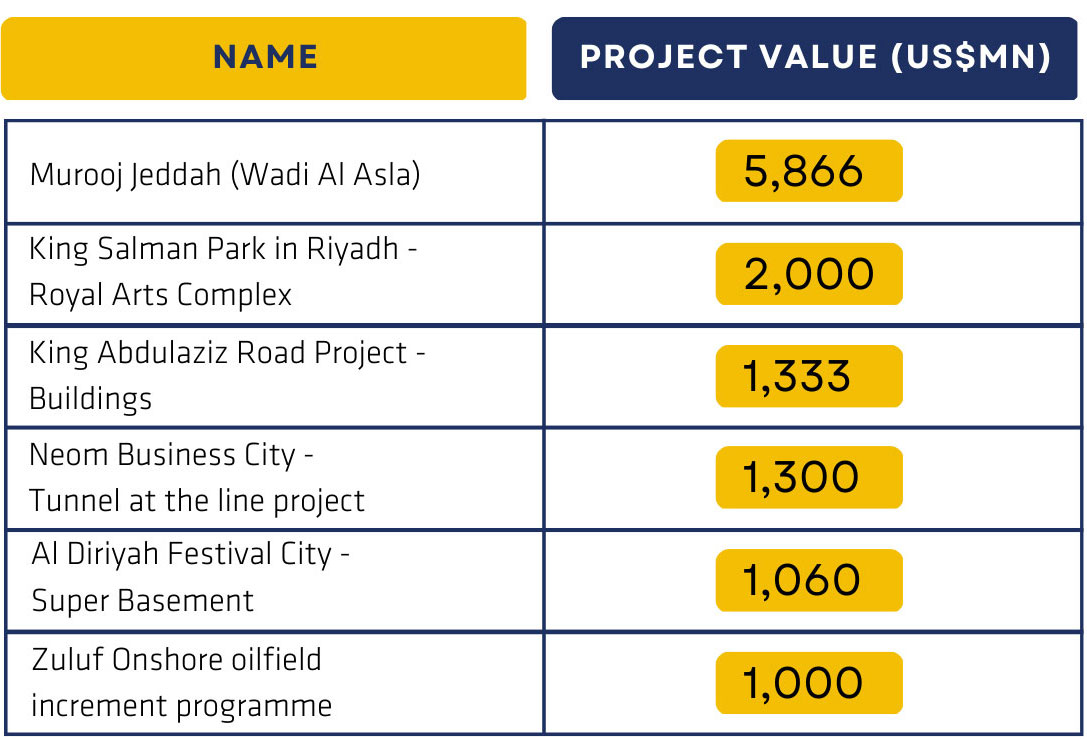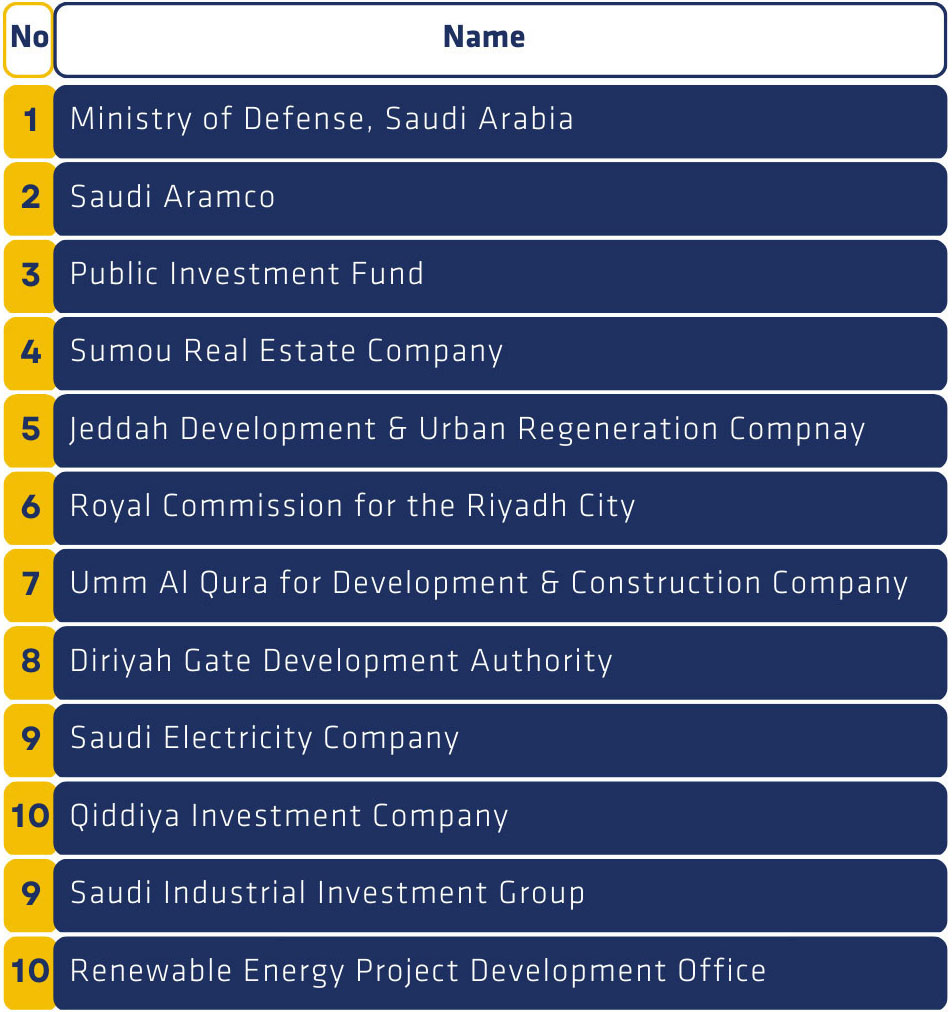 REQUEST A FREE DEMO
REQUEST A FREE DEMO

Saudi Arabia's construction market has been experiencing significant growth in recent years, driven by increasing government investment and a surge in private sector projects
Saudi Arabian Construction Market 2022 report provides a comprehensive analysis of the construction industry in Saudi Arabia, including an overview of key trends, challenges, and opportunities. The report covers various aspects of the market, such as the current state of infrastructure projects, residential and commercial construction, and government initiatives aimed at promoting investment in the sector.
It also examines the impact of the COVID-19 pandemic on the construction industry in Saudi Arabia and discusses the potential for growth in the coming years. This detailed report will serves as a valuable resource for businesses and investors looking to enter or expand in the Saudi Arabian construction market.
The Kingdom of Saudi Arabia's economy is expected to experience strong growth in 2022, with a projected budget surplus of $24 billion. The government is investing heavily in key sectors such as education and construction to support economic diversification and growth. The country's construction industry is expected to receive significant support from large-scale projects such as Neom, the Red Sea project, Amaala, and Qiddiya. The government remains committed to its Vision 2030 goals and plans to allocate funds towards pandemic-related risks such as healthcare infrastructure and support for impacted businesses. The Ministry of Finance has forecasted a real GDP growth rate of 7.4% in 2022.

The Saudi Cabinet has approved a budget for fiscal year 2023, which starts with a surplus of $4 billion. The surplus will be used to strengthen the kingdom's financial position, boost government reserves, and support state funds. The budget will focus on continuing previously announced initiatives, including giga projects, to improve the economy, quality of life, and services for citizens and residents. These initiatives include the National Transformation Program, National Industrial Development and Logistic Program, Quality of Life, Pilgrim Experience Program, Saudi Green Initiative, and others.

The construction sector plays a vital role in KSA's economy, with significant contributions to the country's GDP. In 2022, it's estimated that the construction contractor awards will reach US$ 47,310 million, increasing to US$ 55,959 million in 2023. The substantial investments allocated to the construction industry reflect its importance in the country's economic growth and development.
Among the sectors, the building industry is expected to have the most substantial contractor awards. According to Knight Frank's report, a global property consultancy, there will be significant growth in the building sector in the coming years. The report projects a demand for 555,000 new residential units by 2030, indicating a vast need for new housing developments. Additionally, the tourism industry will require more than 275,000 new hotel rooms.
Under Vision 2030, KSA plans to invest over US$ 65 billion to improve the healthcare infrastructure, targeting the privatization of 290 hospitals and 2,300 primary health centers to increase the private sector contribution from 40% to 65% by 2030. KSA aims to involve the private sector in health projects over the next five years. The healthcare sector has experienced remarkable growth and continues to be one of the few sectors unaffected by economic fluctuations.
Saudi Arabia is investing heavily in its infrastructure to move away from oil and become a global hub for investment and logistics, in line with its Vision 2030. Key projects such as the Riyadh Metro, railway links, and airport upgrades will be critical to achieving the country's growth ambitions. The country is also undertaking a significant
Mining is a target for transformation in Saudi Arabia and is intended to be the third pillar of the oil, gas, and petrochemical industries. Many factories, as many as 1,801, with a capital of US$ 18.3 billion, are under construction.

